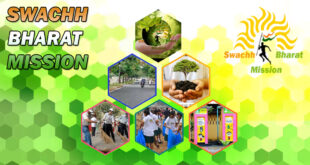In natural disasters such as Cyclone Gaja, a resilient health system can make all the difference It is 15 days since Cyclone Gaja made landfall in southern Tamil Nadu, wreaking havoc in six districts of the State. At least 3,000 public health personnel still remain on the ground, organising medical camps, chlorinating water sources, looking out for mosquito breeding sources and, more importantly, maintaining sanitation in affected areas. K. Kolandaswamy, who is the Director of Public and Preventive Medicine, Government of Tamil Nadu, leaves nothing to chance. He believes that in the event of any disaster, public health is crucial. Importance of surveillance Disasters create a significant impact on the lives and health of people. Hence, disease surveillance becomes important. The World Health Organisation (WHO) says that every year, natural disasters claim around 90,000 lives and affect close to 160 million people worldwide. In their aftermath, there have been instances of disease outbreaks. For example, there was a cholera outbreak after a massive earthquake struck Haiti in 2010, and a leptospirosis spike after a cyclone in Odisha in 1999. WHO wants the focus of health emergency and disaster risk management to be broadened “ from that of response and recovery to a more proactive approach which emphasises prevention and mitigation, and the development of community and country capacities to provide timely and effective response and recovery.” After Gaja swept across the delta regions of Tamil Nadu, over 6.58 lakh people were screened in 10,433 medical camps — both static and mobile — in the six affected districts. The numbers tell the tale: in a post-disaster situation, a resilient health system is indispensable. For public health officials, providing access to safe drinking water, food and sanitation are the formula; any lacuna could increase the risk of health hazards. Says Dr. Kolandaswamy: “Post-cyclone, public health measures are targeted towards providing medical care, prevention and control of infectious diseases, providing safe drinking water, sanitation in temporary shelters and mosquito/fly control activities. Teams are chlorinating water sources and removing potential mosquito breeding sources in the affected areas.” A team of 289 doctors and 245 nurses from the State Health Department continue to be on the field in the affected areas of Cuddalore, Nagapattinam, Tiruvarur, Thanjavur, Pudukottai and Ramanathapuram districts. Nearly 120 mobile medical teams, 45 food safety teams, 306 vector control teams, 311 chlorination teams and 134 emergency ambulance services are on the job. It is important to ensure that health services are maintained in the aftermath of a disaster, Dr. Kolandaswamy says:. “We have ensured that we are reaching people at their doorsteps through medical camps. This helps us to pick up cases of fever and diarrhoea early,” he adds. Sanitation crucial Experts say sanitation should not take a back seat. For example, a community or marriage hall turns into a home for several of those who have been affected for at least 15 days till restoration works are complete. Dr. Kolandaswamy says, “Sanitation at these temporary shelters is one of the priority areas. Not to forget the accommodation of those involved in relief work too.” The threat of water- and vector-borne diseases looms large in the event of floods and cyclones. P. Kuganantham, former city health officer, Chennai Corporation, vividly remembers people in flood-hit areas waiting for food and water. “That is the basic need,” he says. “Hence, chlorinated water should be supplied and food served to them should be hot and fresh.” As a former consultant with the UNICEF and U.S. Centers for Disease Control and Prevention, he has worked in situations such as after an earthquake in Gujarat, the tsunami in 2004, in Tamil Nadu, and floods in Odisha. The commonest diseases in a post-flood situation, for example, include cholera, typhoid, jaundice and leptospirosis. There is also a likelihood of an outbreak of dengue and malaria. Children, he says, are likely to develop measles, as was seen during the tsunami in Tamil Nadu. “This is primarily due to overcrowding in relief centres. So, vaccination against measles should be given.”
Source : https://www.thehindu.com/todays-paper/tp-opinion/keeping-the-vigil/article25645663.ece
 Chinmaya IAS Academy – Current Affairs Chinmaya IAS Academy – Current Affairs
Chinmaya IAS Academy – Current Affairs Chinmaya IAS Academy – Current Affairs



